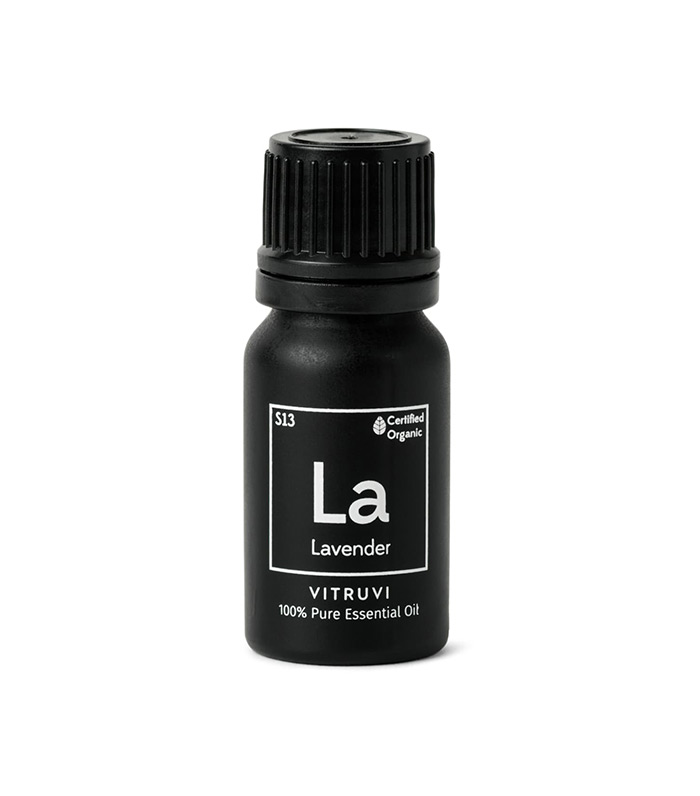Here's Why You Get Back Pain During Your Period—and How to Get Some Sweet Relief
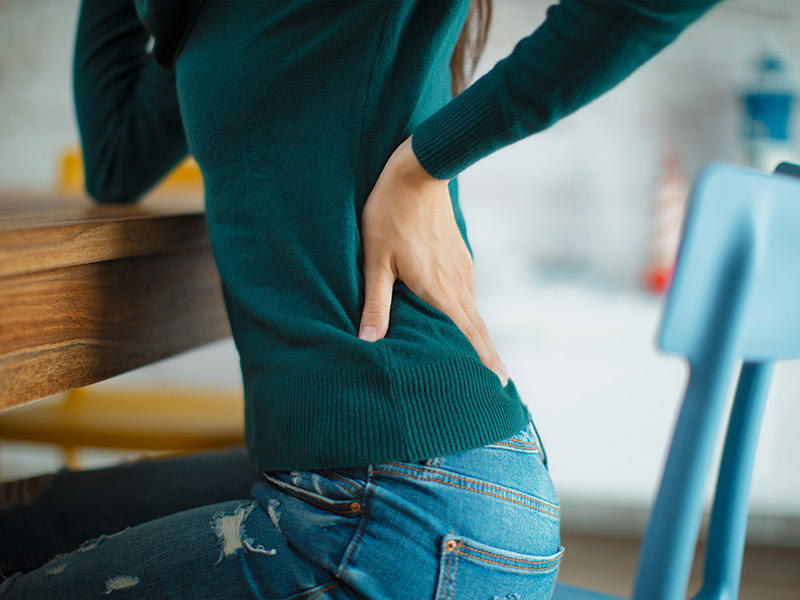
Oh, the joys of PMS and periods. During the days leading up to and during your period, you get to experience a variety of symptoms, from hot flashes to nausea to painful cramps. For a lot of women, those days of the month can really throw them off track—sometimes making them call out sick at work, skip social events, and just feeling uncomfortable throughout the day when they've got a million other things to do.
Lower-back pain is another common (and annoying) symptom that you might experience before and during your period. As I'm writing this story, I'm currently going through some lower-back pain problems and on the first day of my period. If life is imitating art, I'd like it to stop now… I've been getting up from my desk to walk around after every paragraph I write because it's been helping me with my discomfort but also making it a lot harder to get this story done in a timely manner.
Why do we get lower-back pain during our time of the month? All roads lead to prostaglandins, a chemical your body makes. It triggers uterine muscle contractions, which helps your uterus expel its lining, but can also cause cramping, which leads to back pain. "If you have uterine cramping, it can radiate to the back, and hip pain can radiate to the pelvis. The body's way more interconnected than we even think," says Heather Bartos, MD, a board-certified OBGYN and founder of Be. Women's Health and Wellness clinic in Texas.
Some women might feel more intense pain than others. "Our uterus is either tilted forward, it's right mid-line, or is tilted backward, and those are all normal variants," Bartos says. "If you have a tilted backward uterus or retroflexed uterus, it can then, of course, exacerbate that because it's tipped toward the back. It can create those symptoms even more."
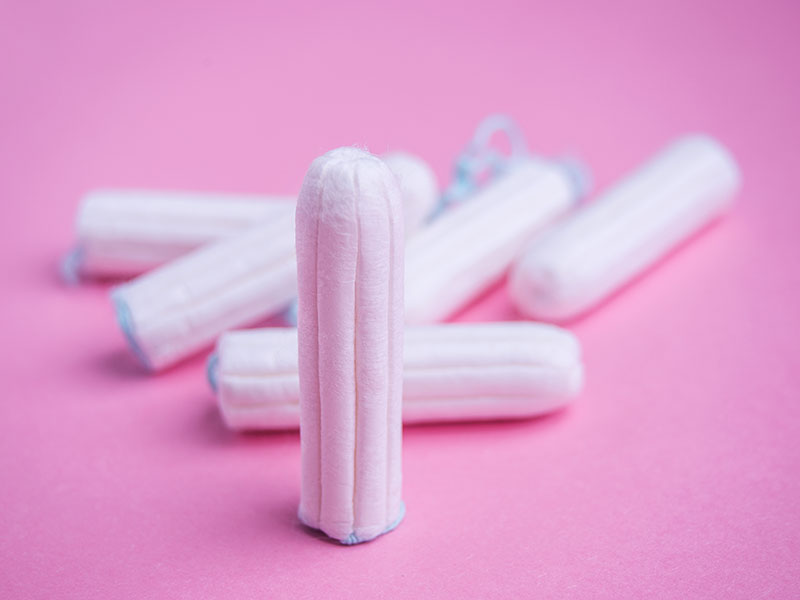
For the most part, it's normal to experience some back pain during this time, but you'll want to chat with your doctor if the pain continues for a long time. "If you're having it all month long, or it's not with your period or around your period, then you should have that evaluated," Bartos recommends. "It shouldn't last past the first day or so of your period. If it's lasting six or seven days into your cycle, that's not normal." She suggests keeping track of when you're feeling pain to make sure it's not a sign of something else.
You should also see a doctor if it becomes too debilitating that you can't do anything. "If it sucks severely enough where you're having to stay home from school or work, or you're having trouble walking, those are definitely signs you need to get that evaluated. Or if it's pain where it's not being helped by common remedies," she says. And what exactly are these remedies? We've outlined them below.
Medication
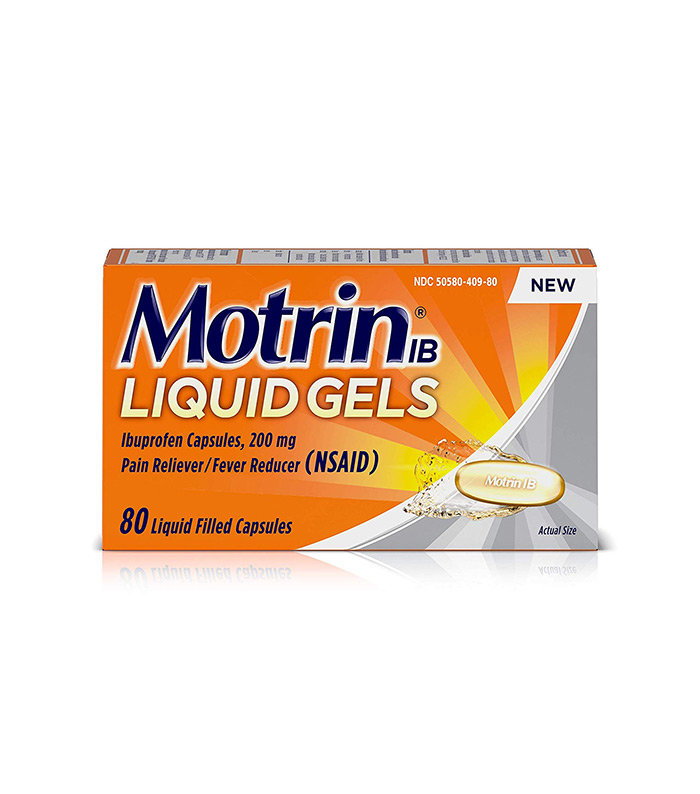
"Ibuprofen is always a great choice. It is an anti-inflammatory, and there's an inflammatory process going on down there," Bartos suggests. "Motrin and those medications in that class of NSAIDs (nonsteroidal anti-inflammatory drugs) also can decrease the amount of period blood that you have because it actually constricts the arteries in the uterus a little bit. If you have heavy periods, taking Motrin can actually help with that too."
Besides ibuprofen, there are other options out there for you—and sometimes if over-the-counter meds aren't working, a prescription might be necessary. "There are newer medications that are out there that we can give to treat just the pain at the time that are not narcotics. As you know we have a narcotic crisis, and we're all super careful to not prescribe narcotics for women unless it's absolutely necessary," she says. "We try to stick with something that's over-the-counter, like Motrin, or some of these newer medications that are in the Motrin family, but they're nasal sprays or other things that are cool and new, but they're prescription. There's one called Sprix. It's a nasal spray in the Toradol family. Toradol is like this super-awesome high-powered ibuprofen that's usually in injectable form, but it's a nasal spray, so it works really fast."
If you want to get ahead of the back pain, Bartos recommends taking the medication a day before your period starts.
Birth Control
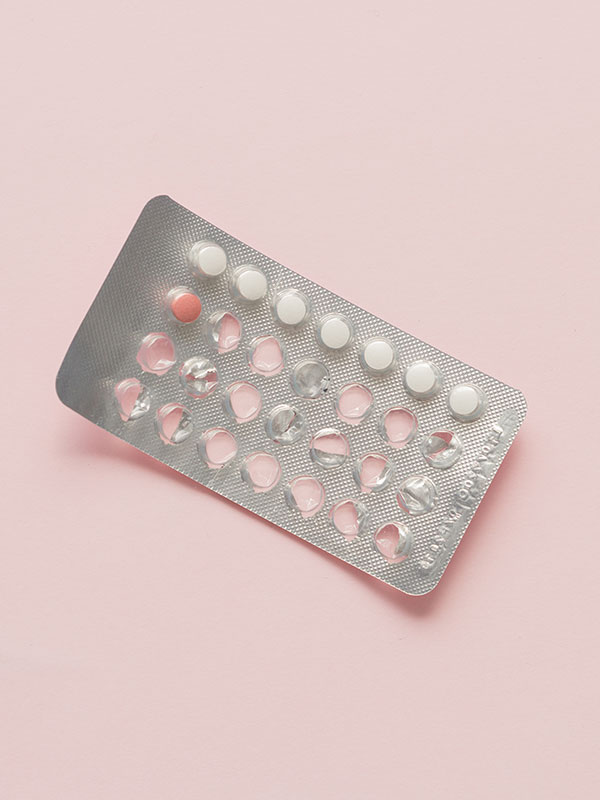
Hormonal birth control methods like the pill, an IUD, and the patch can provide some relief. "Birth control pills can help if your periods are really heavy and you're also having back pain with your periods," Bartos says. "It can help because it lessens the period and you also lessen the hormones ahead of time. Some women like this other pharmaceutical method of treatment."
Heat
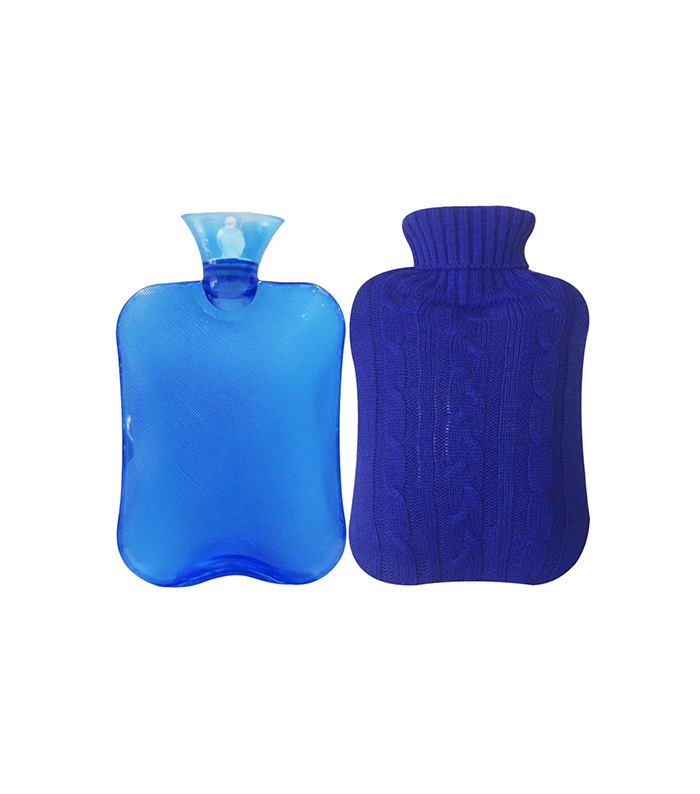
A little heat focused on the area of pain can relax the muscles and provide some comfort—think a heating pad or hot shower or bath. You can even get creative with the source of heat. "I'm always a big fan of nontraditional treatment, even in Texas where it's 102 degrees out right now, if I have back pain, I turn on my heated car seats," Bartos says.
Stretching
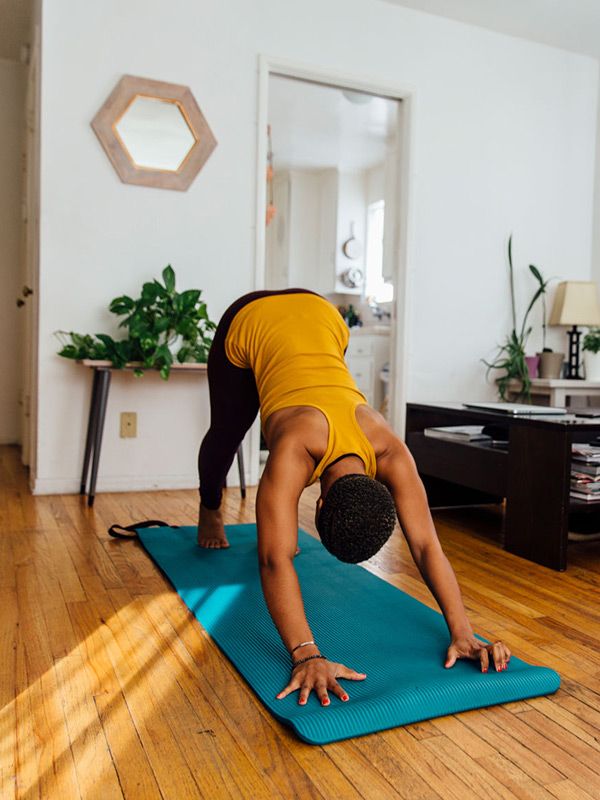
Some movement can do you some good. "Yoga stretches can help. I often recommend yoga stretches for my girls. Downward dog is a good one that stretches out the back. Or, put your legs and your butt against the wall and look up at the ceiling—that's a really good one for back pain during your period," Bartos recommends. "Also the stretch where you put your feet together and then lay back over a big pillow, so you're backwards so you extend—that's also a good one. Yoga, Pilates, those kind of stretching things are really good."
Orgasms
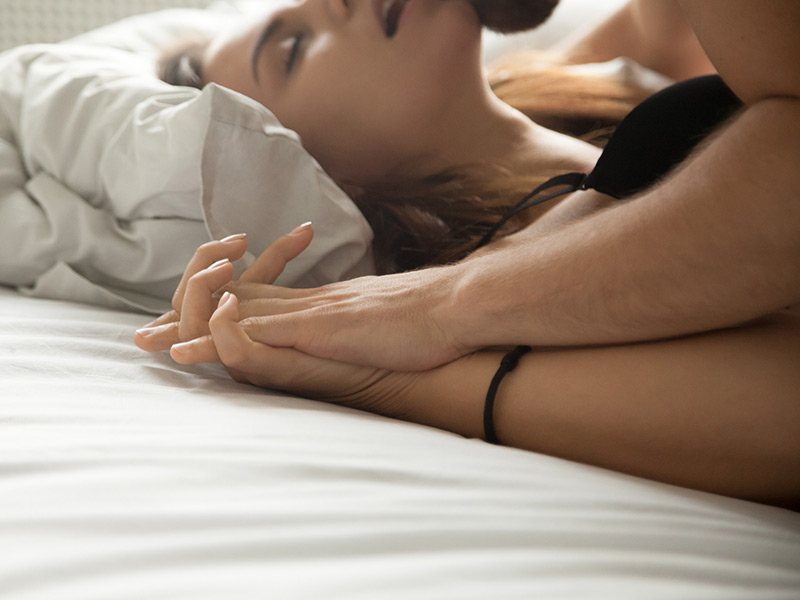
"Orgasms can help too because they contract the uterus. It can help relieve the tension on those uterosacral ligaments, or it can also get the uterus squeezing its muscles, so it releases the tension there, which can help with the back too. It also provides natural endorphins, which, of course, help with pain," Bartos adds.
Acupuncture or Acupressure
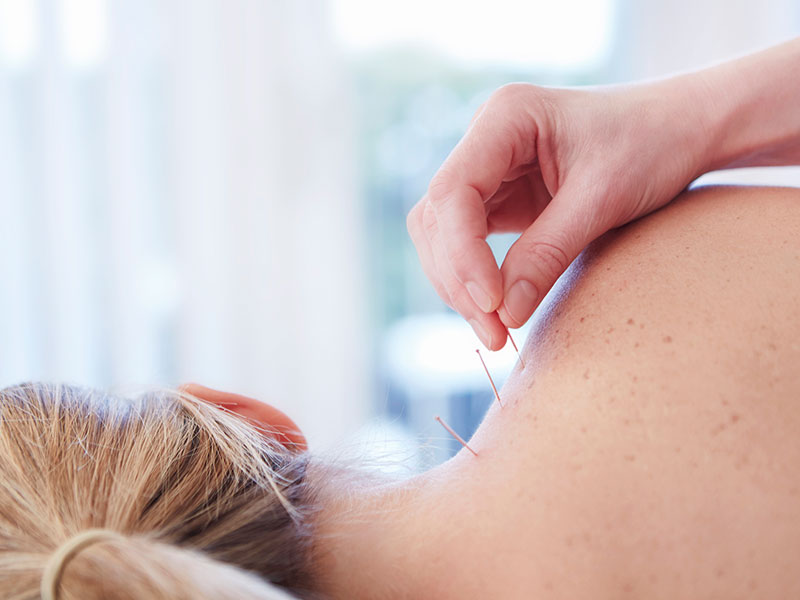
Bartos says that some of her patients have reported that acupuncture or acupressure can provide some relief, too. She's a big fan herself, but ultimately says it's all about finding what's right for you.
CBD or Essential Oils
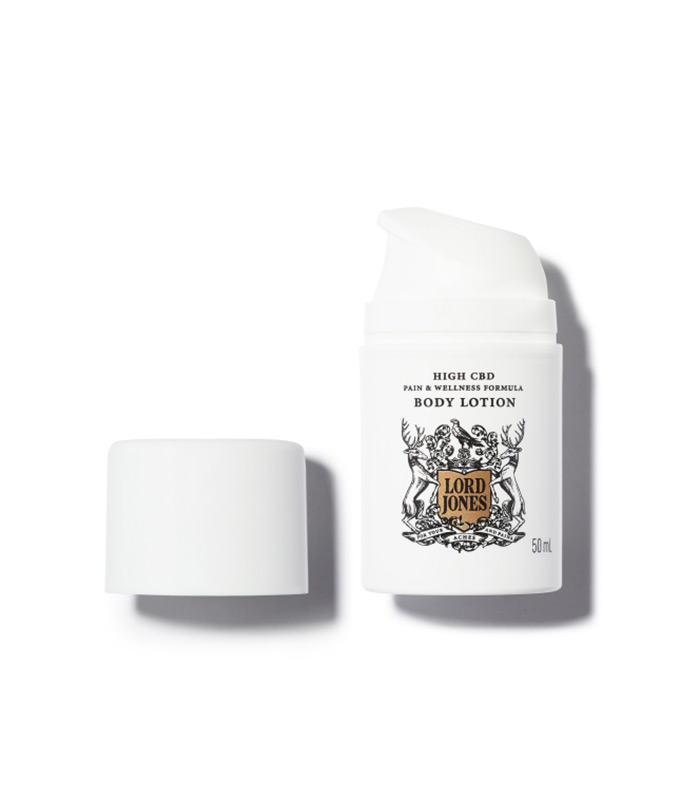
Although there isn't a ton of research out there on the efficacy of CBD oils yet, Bartos says some people have seen success when it comes to back pain. Additionally, essential oils might be another option. "I think the oils do have a good place. People use a lot of the oils, lavender and stuff like that. There are some studies that essential oils on the back and on the lower pelvis above the pubic hairline can help," she says.
This article is provided for informational purposes only and is not intended to be used in the place of advice of your physician or other medical professionals. You should always consult with your doctor or healthcare provider first with any health-related questions.
Sarah is lifestyle writer and editor with over 10 years of experience covering health and wellness, interior design, food, beauty, and tech. Born and raised in Los Angeles, she attended New York University and lived in New York for 12 years before returning to L.A. in 2019. In addition to her work atBest Knockoff Luxury Clothing , she held editor roles at Apartment Therapy, Real Simple, House Beautiful, Elle Decor, and The Bump (sister site of The Knot). She has a passion for health and wellness, but she especially loves writing about mental health. Her self-care routine consists of five things: a good workout, “me” time on the regular, an intriguing book/podcast/playlist to unwind after a long day, naps, and decorating her home.
